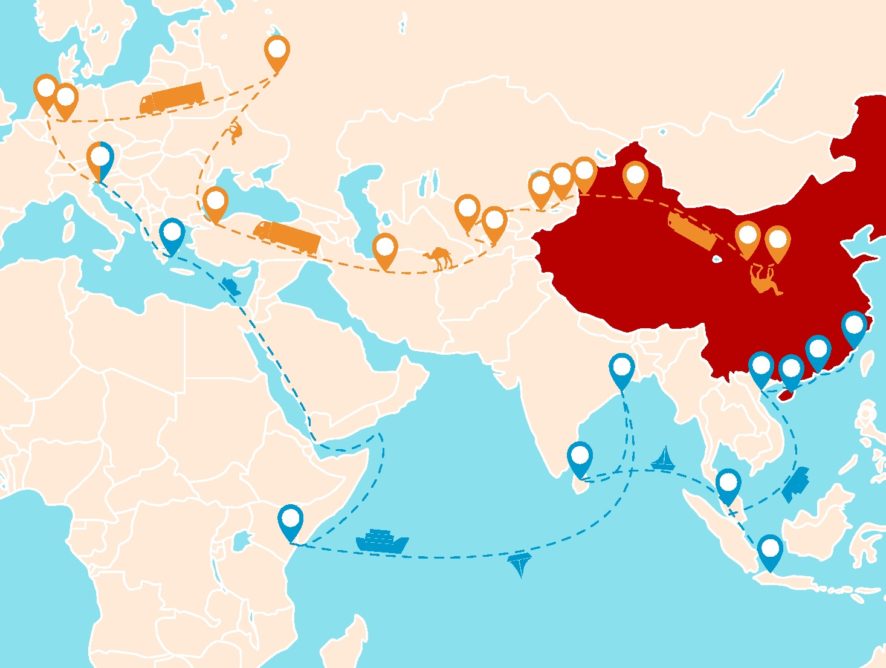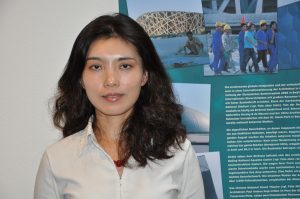
- This event has passed.
Lecture: Does China’s BRI have smart power on Southeast Asian countries?
May 2019 @ 18:00 - 20:00
Event Navigation

Lecture:
Does China’s BRI have smart power on Southeast Asian countries?
Dr. Lee Chun-Yi (University of Nottingham)
Thursday, May 2,2019, 6pm (c.t.) – 8 pm
VG 2.103, Verfügungsgebäude, Platz der Göttinger Sieben 7, Göttingen
Abstract:
The One Belt One Road project (OBOR, later known as the Belt and Road Initiative, BRI), initiated by Chinese President Xi Jinping, took shape in October 2013. It is envisaged to connect vibrant East Asia and developed Europe via the Silk Road Economic Belt, linking China with European countries through the 21st Century Maritime Silk Road. Its ultimate goal is to facilitate trade and investment in Eurasia and promote economic growth. The BRI triggered great discussion within and beyond China, with the intention of positioning China in an active role of global governance.
The main Asian countries on the map of China’s maritime belt include Vietnam, Malaysia, Philippines, Indonesia, Singapore and Thailand. So far there has been no systematic research focusing on the socioeconomic impact of China’s BRI particularly on the question of to what extent the BRI’s smart power, that is the combination of hard power (economic and military) and soft power (cultural influence) on those countries. In this paper I will aim to compare and contrast Chinese investment on Vietnam and Malaysia.
The structure of the paper will be as following, the first section will be the discussion of smart power, the second section will be the empirical data of Chinese investment in selected countries of China’s BRI: Vietnam, Malaysia and Singapore. The empirical data will be composed by qualitative interviews and also statistic data from the listed countries. The third section will be the analysis of ‘effectiveness’ of China’s smart power by interpreting those countries responses towards Chinese investment in comparison of their responses towards China’s position in South China Sea.
Key words: Smart Power, Maritime Silk Road, South China Sea
Bio:
 Dr Lee Chun-Yi’s is an Associate Professor at school of Politics and International Relations, she is also the director of Taiwan Studies Program at University of Nottingham. Chun-yi’s current research project is on geopolitical implications of BRI. She has served as a visiting research fellow at East Asia Institute at National University of Singapore from May to June 2018.
Dr Lee Chun-Yi’s is an Associate Professor at school of Politics and International Relations, she is also the director of Taiwan Studies Program at University of Nottingham. Chun-yi’s current research project is on geopolitical implications of BRI. She has served as a visiting research fellow at East Asia Institute at National University of Singapore from May to June 2018.
Dr Lee’s past research included Chinese investment in Taiwan. This project investigated bilateral cross-Strait economic activities and their impact on the two societies. It is a two and a half year project from July 2014 to December 2016. Dr Lee’s previous research project was on Chinese labour within the global economy with Prof Andreas Bieler at the School of Politics and International Relation. A three-year project that was completed in September 2014, it investigated the influence of different foreign investors on Chinese workers and labour rights.
Image: "One Belt One Road" new Silk Road concept. @Shutterstock
